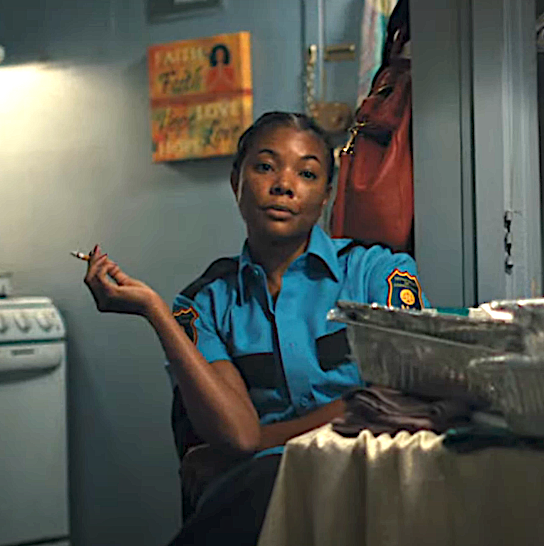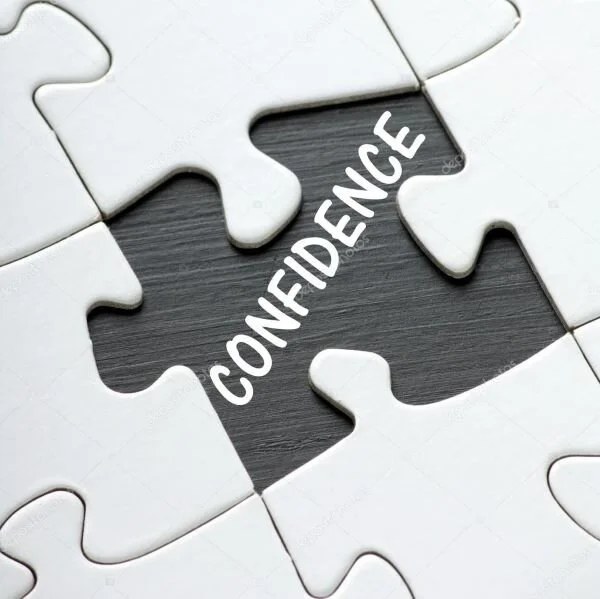Contagious Confidence
A beautiful, successful actress and entrepreneur, Gabrielle Union surprised all three interviewers on CBS This Morning as she laid out the basis for her lack of confidence. Union was transparent about her low esteem with regard to her industry, her acting abilities and even as a mother—feeling like she was “underwater” in many of these areas.
What changed for Union, with respect to her industry and acting, was the contagious confidence she embraced from director of The Inspection, Elegance Bratton, whose relationship with his mother is the basis of the story. At his invitation, Union was happy to join the film as executive producer, but she needed convincing that she had what it would take to play a major, serious role—the kind of role that in her thirty-year career, she had never been considered for. Bratton could see what Union didn’t see in herself and as she says, he had more confidence in her than she had in herself. For Union, this was a much-needed boost for her to own her value and worth.
After she successfully “delivered” her role, and with a newfound level of confidence, Union says that she gave herself permission to move out of her comfort zone and to dream about other similar roles. Many have considered her portrayal of a mother rigid in her homophobic views regarding her son as Oscar-worthy. Union’s experience brought a deep level of introspection about her life and work—the kind that shifts who we believe we can be and what we can contribute.
Confidence, whether we muster it up for ourselves or embrace it through the encouragement of others, is a leadership strength that can reveal what we are made of. How many ways can we help inspire confidence in others?
Union’s interview inspired me to reshare the post below I wrote in 2020.
How Confidence Fuels Adaptability
We recently participated in a webinar hosted by Rebel Wisdom exploring resilience and sense-making. One of the speakers, Diane Musho Hamilton, said that since we are all hard-wired to adapt we should have confidence in our ability to change and overcome challenges. How can our inherent ability to adapt, enhanced by our confidence level, determine how we manage this current crisis and others to follow? By looking at our story.
Human Adaptability
The story of human evolution reveals our extraordinary ability to adapt. Throughout millennia humans have evolved biologically, environmentally, and culturally to meet the major shifts and developments of an ever-changing world. Adaptability is the capacity to readily adjust to different conditions. Humans adapt by adjusting to living conditions, climate changes, natural disasters, social and political upheavals, and pandemics. We innovate and acclimate to survive.
The plasticity of our brain allows for new connections to form between neurons. As we gain new insights, we share information, pass on knowledge and create the culture by which we adjust to new situations. Confidence in our capacity to adapt to change rests in how we alter our perceptions, thoughts, and actions in response to new situations.
To paraphrase Charles Darwin in The Origin of Species, it is not the strongest of the species that survives, nor the most intelligent, but the one most adaptable to change.
Performing and Leading with Confidence
Nobody is born confident. Confidence is learned, can be generated and should be practiced. Navigating the ups and downs of our confidence quotient is key to our adaptability. Why is confidence so important? Confidence comes from a Latin word fidere, which means "to trust." Believing in yourself, knowing your value and trusting in your judgment and abilities are the foundations of confidence.
Your success will be determined by your own confidence and fortitude.
―Michelle Obama
Artists push past fear of failure by moving out of their comfort zones and challenging themselves to innovate. Of course, having the requisite skills, discipline, and determination is crucial, yet confidence is an essential trait that propels the very risk-taking necessary to create. A jazz musician needs confidence to get on the bandstand and know that his/her contribution will add value to a performance. Improvising with energetic assurance while sharing their unique sound requires confident mindsets and shared purpose.
Building confidence is a life-long process of: overcoming doubt, continual learning, and rising to meet challenges. Over time, as our confidence increases, we gain much more security in our decision-making. Bold leadership revels in the confidence to make tough decisions and to follow through with definitive action.
Shared from Self-Growth.com
Society will change as a result of this pandemic. As we move through this challenging period of uncertainty, we must adapt. New behaviors and unfamiliar ways of interacting may become necessary. Norms like hand-shaking may be over; new technologies may reduce the need to touch surfaces in public; and our public- and work-spaces may be re-designed to maintain social distancing. How readily we adapt will determine how ready we are to thrive.





